Jeep Wrangler vs VW T-Cross – Differences & prices compared
Compare performance, boot space, consumption and price in one view.
Find out now: which car is the better choice for you – Jeep Wrangler or VW T-Cross?
The Jeep Wrangler (Off-Roader) comes with a Plugin Hybrid engine and Automatic transmission. In comparison, the VW T-Cross (SUV) features a Petrol engine with Manuel or Automatic transmission.
When it comes to boot capacity, the Jeep Wrangler offers 533 L, while the VW T-Cross provides 455 L – depending on how much space you need. If you’re looking for more power, decide whether the 380 HP of the Jeep Wrangler or the 150 HP of the VW T-Cross suits your needs better.
In terms of consumption, the values are 3.30 L per 100 km for the Jeep Wrangler, and 5.40 L for the VW T-Cross.
Price-wise, the Jeep Wrangler starts at 69900 £, while the VW T-Cross is available from 20900 £. Compare all the details and find out which model fits your lifestyle best!
Jeep Wrangler
The Jeep Wrangler is a symbol of rugged adventure and off-road capability, renowned for its distinctive boxy design and iconic seven-slot grille. Its interior blends practicality with modern technology, providing a comfortable environment whether you're navigating city streets or challenging terrains. With a loyal fan base, the Wrangler continues to capture the spirit of freedom and exploration, making it a favourite among outdoor enthusiasts.
details @ media.stellantis.com
@ media.stellantis.com
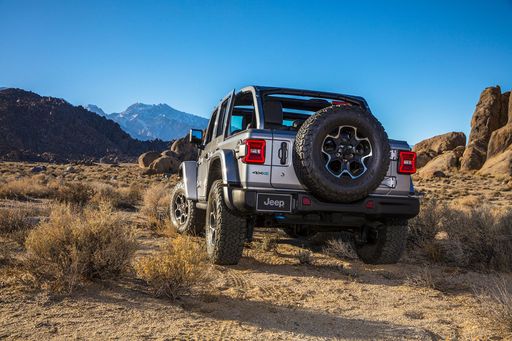 @ media.stellantis.com
@ media.stellantis.com
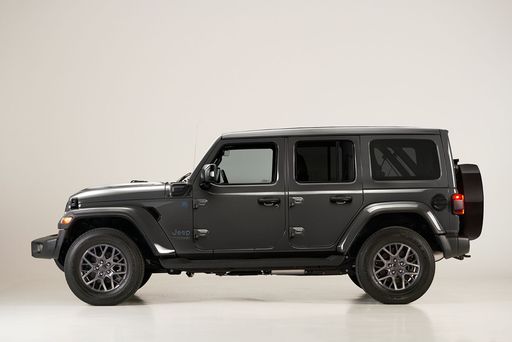 @ media.stellantis.com
@ media.stellantis.com
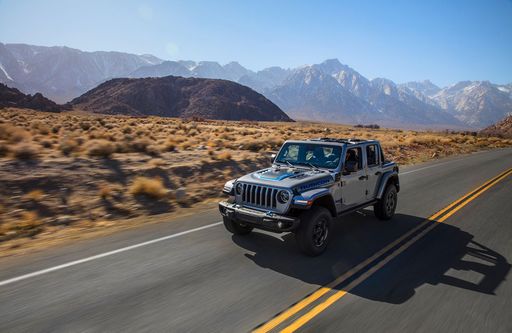 @ media.stellantis.com
@ media.stellantis.com
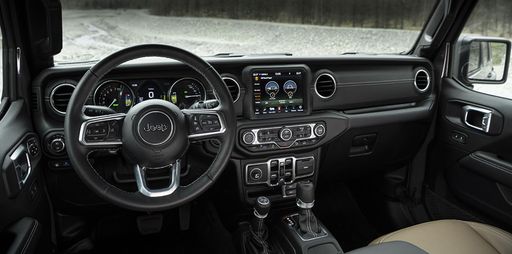 @ media.stellantis.com
@ media.stellantis.com
VW T-Cross
The VW T-Cross stands out as a versatile compact SUV that combines practicality with style. Its interior design offers a spacious and flexible layout, ideal for both city driving and weekend adventures. With its modern infotainment system, the T-Cross ensures drivers and passengers stay connected throughout their journeys.
details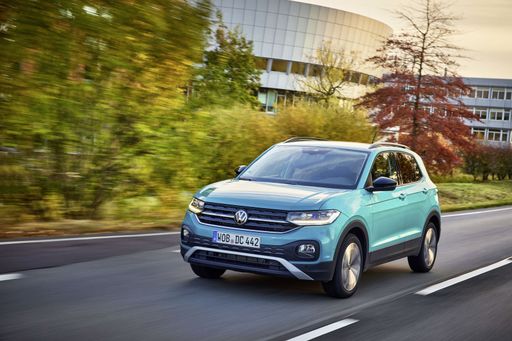 @ Volkswagen
@ Volkswagen
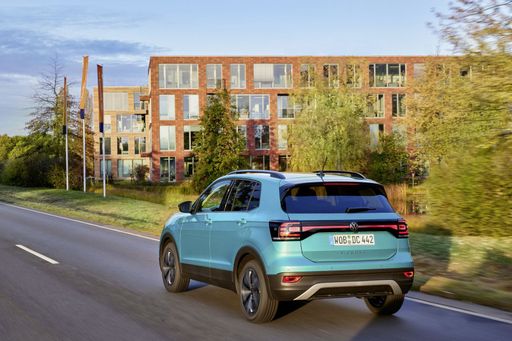 @ Volkswagen
@ Volkswagen
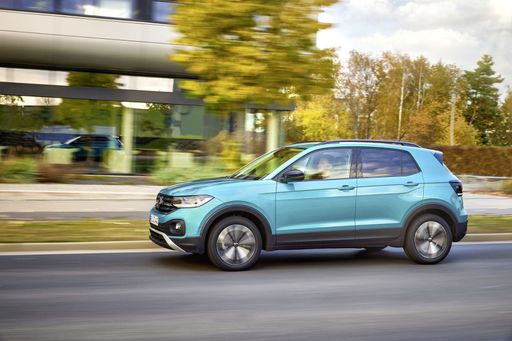 @ Volkswagen
@ Volkswagen
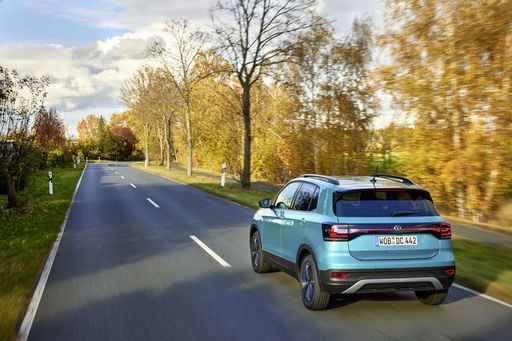 @ Volkswagen
@ Volkswagen
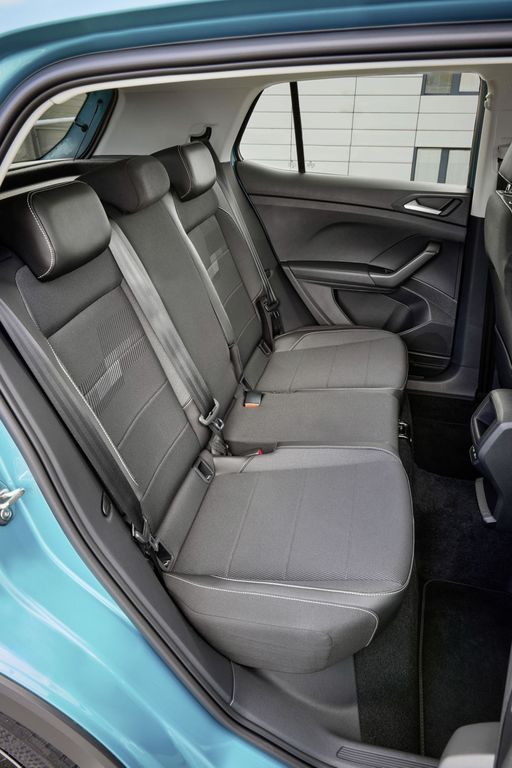 @ Volkswagen
@ Volkswagen
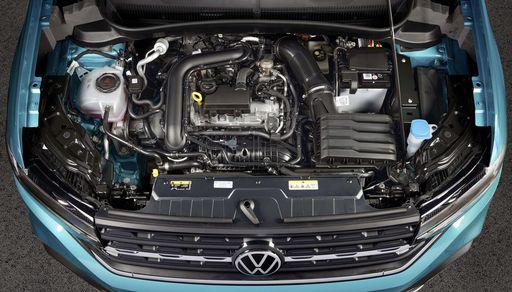 @ Volkswagen
@ Volkswagen

|

|
|
|
|
Costs and Consumption |
|
|---|---|
|
Price
69900 - 71600 £
|
Price
20900 - 31300 £
|
|
Consumption L/100km
3.3 - 4 L
|
Consumption L/100km
5.4 - 6 L
|
|
Consumption kWh/100km
-
|
Consumption kWh/100km
-
|
|
Electric Range
38 - 42 km
|
Electric Range
-
|
|
Battery Capacity
-
|
Battery Capacity
-
|
|
co2
74 - 91 g/km
|
co2
124 - 136 g/km
|
|
Fuel tank capacity
65 L
|
Fuel tank capacity
40 L
|
Dimensions and Body |
|
|---|---|
|
Body Type
Off-Roader
|
Body Type
SUV
|
|
Seats
5
|
Seats
5
|
|
Doors
5
|
Doors
5
|
|
Curb weight
2276 - 2383 kg
|
Curb weight
1267 - 1338 kg
|
|
Trunk capacity
533 L
|
Trunk capacity
455 L
|
|
Length
4882 mm
|
Length
4127 mm
|
|
Width
1894 mm
|
Width
1784 mm
|
|
Height
1838 - 1848 mm
|
Height
1573 mm
|
|
Payload
520 - 536 kg
|
Payload
463 - 480 kg
|
Engine and Performance |
|
|---|---|
|
Engine Type
Plugin Hybrid
|
Engine Type
Petrol
|
|
Transmission
Automatic
|
Transmission
Manuel, Automatic
|
|
Transmission Detail
Automatic Gearbox
|
Transmission Detail
Manual Gearbox, Dual-Clutch Automatic
|
|
Drive Type
All-Wheel Drive
|
Drive Type
Front-Wheel Drive
|
|
Power HP
380 HP
|
Power HP
95 - 150 HP
|
|
Acceleration 0-100km/h
6.50 s
|
Acceleration 0-100km/h
8.4 - 11.3 s
|
|
Max Speed
156 - 177 km/h
|
Max Speed
180 - 200 km/h
|
|
Torque
637 Nm
|
Torque
175 - 250 Nm
|
|
Number of Cylinders
4
|
Number of Cylinders
3 - 4
|
|
Power kW
280 kW
|
Power kW
70 - 110 kW
|
|
Engine capacity
1995 cm3
|
Engine capacity
999 - 1498 cm3
|
General |
|
|---|---|
|
Model Year
2024
|
Model Year
2024
|
|
CO2 Efficiency Class
B
|
CO2 Efficiency Class
D, E
|
|
Brand
Jeep
|
Brand
VW
|
Jeep Wrangler
Introduction to the Iconic Jeep Wrangler
The Jeep Wrangler has long been synonymous with off-road capability and rugged design. With its roots deeply embedded in adventure and exploration, the Wrangler combines classic styling with modern innovations. In its latest iterations, it continues to enhance its reputation as a robust, yet stylish, off-roader suitable for a variety of terrains and conditions.
Technical Specifications and Performance
The 2023 Jeep Wrangler models offer a range of options, with engines that are designed to deliver powerful performance and efficiency. The available engine configurations include advanced Plug-in Hybrid options, as well as traditional petrol engines. All options are paired with an automatic transmission and benefit from the capability of an all-wheel-drive system.
Power output varies from 272 to 380 PS, catering to different driving preferences and demands. The Plug-in Hybrid variant impresses with a consumption as low as 3.3 L/100km, offering an electric range of up to 48 km—ideal for urban commutes and reducing environmental impact. For those wanting a more traditional power experience, the petrol engines deliver robust performance with an acceleration of 0-100 km/h in just 6.5 to 7.6 seconds, depending on the variant.
Innovative Features and Sustainability
The Jeep Wrangler is not just about raw power; it also embodies sustainability with its hybrid technologies. The Plug-in Hybrid models are designed to offer a blend of efficiency and environmentally friendly driving experience. By integrating electric motor capabilities with traditional fuel engines, these models ensure lower emissions and enhanced fuel economy.
Beyond mechanical advancements, the modern Wrangler incorporates cutting-edge technology in its interior. With a suite of safety features and a sophisticated infotainment system, it ensures both driver and passengers enjoy a comfortable and secure journey.
Exterior Design and Interior Comfort
The exterior of the Jeep Wrangler remains a testament to its enduring legacy, featuring the iconic seven-slot grille and round headlights. Yet, it manages to blend this classic look with modern aesthetics, providing a more refined appearance that does not compromise its rugged appeal.
Inside, the Wrangler offers a spacious interior with seating for five, ensuring comfort during long drives. Thoughtfully designed with high-quality materials, the cabin provides both functionality and style. With a generous boot space of 533 litres, it caters to both city drivers and adventure seekers alike.
Versatility and All-Terrain Capability
True to its heritage, the Jeep Wrangler excels in off-road conditions. Thanks to its high ground clearance, robust suspension system, and advanced all-terrain technology, it is perfectly equipped to handle challenging terrains with ease. Whether it's muddy trails or rocky paths, the Wrangler stands ready to tackle any obstacle.
Conclusion: A Vehicle for All Adventures
The 2023 Jeep Wrangler continues to embody the spirit of adventure that has defined the brand for decades. With a combination of powerful performance, advanced hybrid technology, and timeless design, it remains a top choice for those who seek a vehicle as versatile and robust as their lifestyle. Whether navigating urban streets or exploring off-beaten paths, the Wrangler proves once again why it is an enduring favourite among off-road enthusiasts.
VW T-Cross
The VW T-Cross: A Compact SUV with a Punch
Volkswagen’s T-Cross is stamped as one of the most dynamic models in its segment, combining compact dimensions with versatile features. Designed to bring the SUV experience to an everyday environment, the T-Cross ensures both urban convenience and a robust driving performance. Let's delve deeper into its technical specifications and innovative offerings.
Efficient Powertrains and Performance
Under the hood, the VW T-Cross harnesses efficient powertrains including several petrol engine options, ranging from a modest 95 PS to a more dynamic 150 PS. The model's engine configurations offer either manual or automatic transmission options, coupled with a front-wheel-drive system. These specifications aim to strike a balance between spirited driving and fuel efficiency.
The T-Cross comes with a turbocharged 1.0-litre or 1.5-litre TSI engine, equipped with cylinder deactivation (ACT) technology, enhancing fuel economy and reducing emissions. The engines produce a torque range from 175 to 250 Nm, making everyday driving smooth and responsive.
Fuel Efficiency and Environmental Considerations
The VW T-Cross stands out for its commendable fuel consumption figures, running between 5.6 to 6 litres per 100 km. This classifies it within a respectable CO2 efficiency class D, making it an appealing choice for drivers conscious of both their budgets and environmental footprint. The CO2 emissions range from 127 to 135 g/km, reflecting Volkswagen’s commitment to sustainability.
Design and Utility
Sporting a compact design, the T-Cross measures 4127 mm in length, 1784 mm in width, and 1573 mm in height, offering easy manoeuvrability coupled with an elevated driving position. The SUV hosts a 455-litre boot space, providing ample room for personal belongings or shopping expeditions. Priding itself on practical utility, it can comfortably seat five passengers and supports a maximum load capacity of up to 480 kg.
Comfort and Technology
The T-Cross comes available in various trim levels, such as the GOAL, Life, R-Line, and Style, each offering distinct features tailored to customer preferences. Connectivity and infotainment systems are given priority with the availability of a touchscreen display, ensuring convenience through seamless smartphone integration, navigation systems, and a suite of driver assistance features.
A Conclusion on the VW T-Cross
The VW T-Cross is an embodiment of modern ingenuity within the compact SUV market. It harmonises performance with practicality and presents a modernistic approach to urban driving. Whether you seek efficiency, cutting-edge technology, or ample space to accommodate daily activities, the T-Cross makes a compelling proposition. With a pricing bracket spanning from €24,355 to €36,530, the T-Cross caters to a broad array of budgets while promising a touch of Volkswagen's famed quality and innovation.
The prices and data displayed are estimates based on German list prices and may vary by country. This information is not legally binding.
